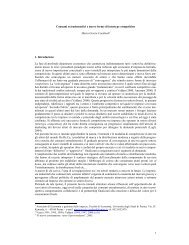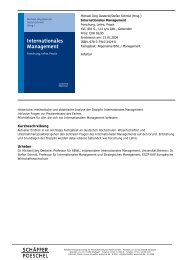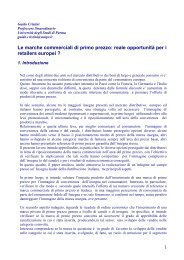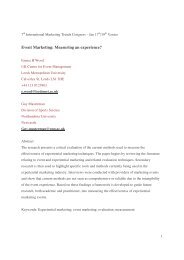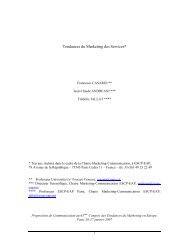European Executive MBA - ESCP Europe
European Executive MBA - ESCP Europe
European Executive MBA - ESCP Europe
You also want an ePaper? Increase the reach of your titles
YUMPU automatically turns print PDFs into web optimized ePapers that Google loves.
Core Courses<br />
Core courses are the foundation of the <strong>MBA</strong> curriculum.<br />
Participants are introduced to the major management disciplines<br />
and exposed to state-of-the-art theory, concepts and real-life<br />
business practices. These courses are taken within each study track<br />
and involve lectures, case studies as well as individual and group<br />
work.<br />
Organisational Behaviour<br />
The human dynamics of the organisation that include its social, cultural<br />
and psychological dimensions will be addressed in this course.<br />
Participants will learn how to decipher and analyze an organisation to<br />
enhance managerial and leadership skills as well as effectiveness.<br />
Organisational structures, individual and managerial behaviours, team<br />
development and other topics will be addressed.<br />
Managerial Economics<br />
Rational decision making involves understanding the macroeconomic<br />
forces that shape the environment in which companies operate and the<br />
microeconomic theories of markets, supply and demand as well as<br />
competition.<br />
This course will provide the keys needed to analyse the competitive<br />
environment and predict market trends.<br />
Corporate Strategy<br />
Thinking strategically, evaluating strategic options, anticipating and<br />
managing strategic change are fundamental skills in today’s everchanging<br />
business environment. The corporate strategy course will<br />
provide participants with tools, models and techniques enabling them<br />
to understand the dynamics of the firm’s situation and how the latter<br />
evolves over time.<br />
Participants will also learn how to perform a strategic diagnosis based<br />
on an analysis of the competitive environment and the evaluation of the<br />
strategic capability of their organisation.<br />
Financial Accounting<br />
Interpreting a financial statement and understanding the implications<br />
of financial decisions will be facilitated through this course which will<br />
introduce key accounting practices, terminology, financial ratios,<br />
cash-flow statements, group financial statements and other notions.<br />
Corporate Finance<br />
This course will explore the two key aspects of corporate finance: investment<br />
decisions and financing corporate organisations. It will introduce<br />
participants to financial concepts and methods that will provide them with<br />
insight into the relationships between financial management and other<br />
aspects of governance, in particular corporate strategy. Present value,<br />
opportunity, cost of capital, valuation of shares, capital structure are just<br />
some of the topics that will be covered.<br />
10





